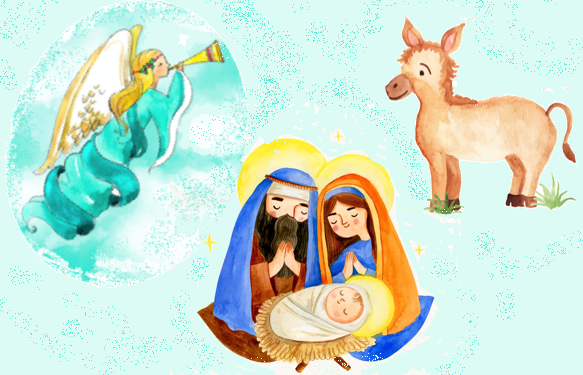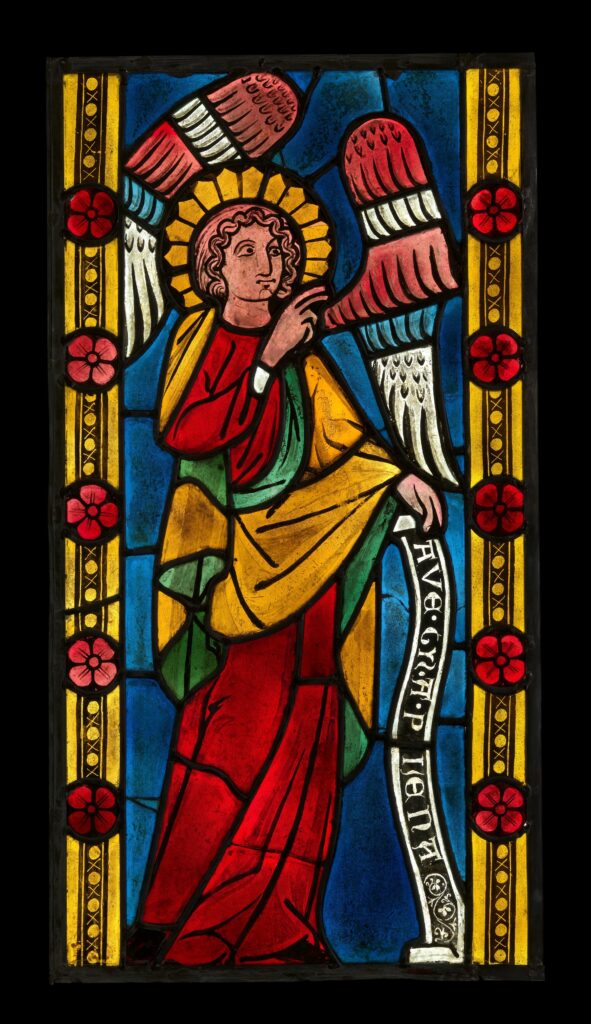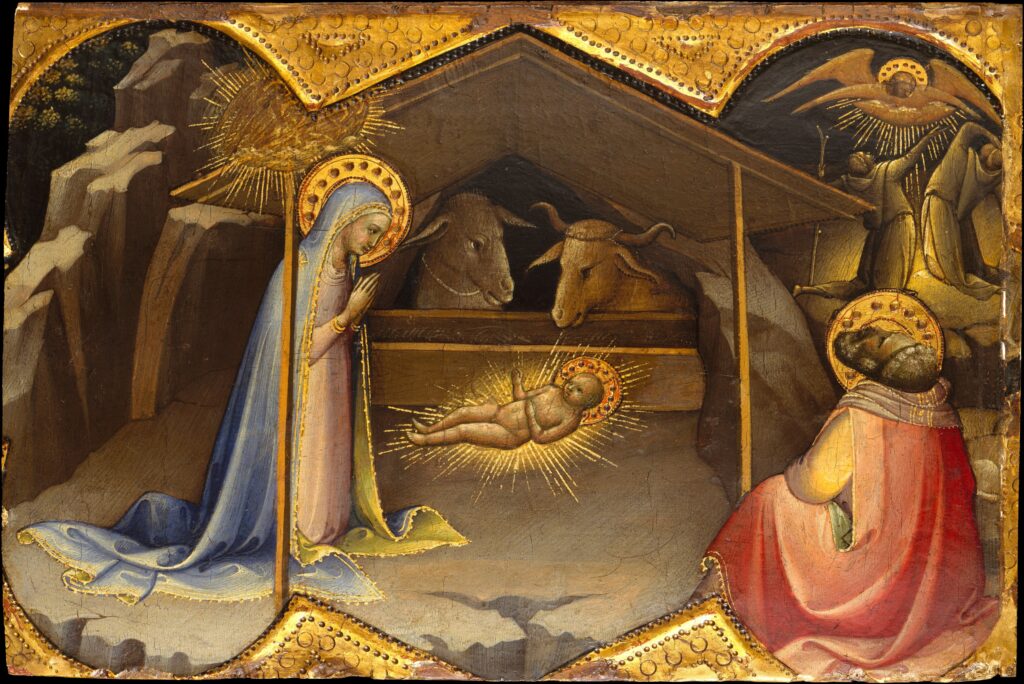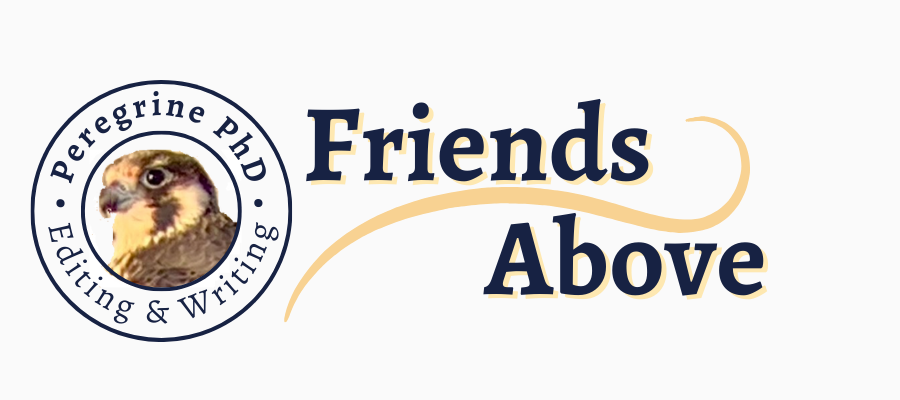A young boy proudly announced to his mother that he had received a speaking part in the church Nativity play.
“Good job!” his mother said. “What role did you get?”
“Harold,” replied the boy.
His mother paused, confused. “Are you sure? There isn’t a Harold in the Nativity story.”
“Yes there is! The angel! Just like in the carol: ‘Hark ye, Harold Angel sings…'”

Most of us are probably as fuzzy on angels as that young boy. Are they real? (Yes). Do they look like cute babies with wings? (No). Can I ask my wife, girlfriend, or cute-girl-in-the-bar if it hurt when she fell from heaven, “’cause you look like an angel to me”? (Please don’t). Do angels matter?
Angels in Heaven, Our Future Home
Yes. Angels are signs of something marvelous breaking into our world. The mind boggles at conceiving of them. They are pure spiritual beings who see God face to face. The presence of the least of these angels in our world scares the living daylights out of people (why else would almost every biblical angel begin by saying “don’t be afraid”?). And yet, as at Christmas, their appearance is a sign of unexpected joy.

These angels who appear in our world are really the least of the angels, even “archangels” like Michael and Gabriel. Traditional angelology (yes, that’s a real theological discipline) tells us that a vast host of angelic creatures live in heaven including the Biblical cherubim, seraphim, thrones, dominions, powers, and principalities (the last four from Col 1:16). These are even more overwhelming. St. John was so overcome with the glory of an angel he sees in heaven that he instinctively fell down to worship him rather than God (don’t worry, the angel stopped him—Rev 19:10). Ezekiel’s depiction of cherubim is so famously freaky—think a whirling mess of heads, wings, and wheels covered with eyes everywhere—that it is hard to imagine how baby ever got described as “little cherub.”
At Christmas, these freaky, alien, incomprehensible beings appear to celebrate with us. That’s amazing. They need nothing from us and they (being sinless) did not need redemption from the cross, but they still came down to rejoice that God became one of us. They came down to rejoice that we could someday be part of the heavenly community with them. Just like the great angels, heaven is almost unimaginable (ear has not seen and eye has not heard…). Yet, I think of the angel’s can’t-stop-from-singing joy and I can’t wait to be part of it whatever it is like.

The Ass and the Ox
That waiting for unimaginable joy is what Advent is. Advent (Latin for “coming to”) is a triple coming: Jesus’ coming at the end of time, Jesus coming as a small baby two-thousand years ago, and Jesus coming in our hearts now. All three are interwoven and together create that community for which we wait.
The angels rejoice. So too does creation. St. Paul tells us that all creation waits with inexpressible groaning, longing to be renewed. How appropriate it is that the traditional Nativity scene has humble animals worshipping Jesus: sheep (for the Good Shepherd), the ox, and the ass (that is, the donkey that Mary rode).
How wonderful is it alongside angels worship is paid by a lowly creature whose name is used for people we reject? Isaiah (1:6) speaks of the ox and ass recognizing the one ignored by His people. We are too distracted by glitzy or rage-inducing events and expect any answer to that to be similarly loud. On a literal level, humble creation recognizes holiness. On a figurative level, ancient interpreters of the Bible point to this too as a prefiguration of hope for us; they saw the ox and ass as symbols of Gentiles and Jews, formerly separated (Dt 22:10) but now brought together by the one source of love. We can be an ass and still recognize God and hope.
God’s Humility and Hope
It is extraordinary that so extraordinary a thing happens in such impoverished setting. The stable and manger seem quaint and cozy to us, but they are the ancient equivalent of Mary being told she can shelter in the hotel’s parking garage, giving birth huddled in a corner there, and creating a makeshift crib out of a wheelbarrow lined with drop clothes. Our hope of heaven and the answer to all the injustice in history came in that insignificant poverty. The one who created the universe came to us in the form of an infant who couldn’t wipe away his own poop. He came with humility and love in a way that unites highest heaven and the lowest depths of earth.
The world often seems to lack hope. At least I feel that way reading the news. Advent reminds us that God is good if we are only attentive enough to stand between the angels and asses to see. His goodness may be small and hidden, but the impact of that Christmas day has outlasted all the noise that captivated the attention of the powerful and important. Its quiet hope is eternal.
Merry Christmas to you and to your loved ones


